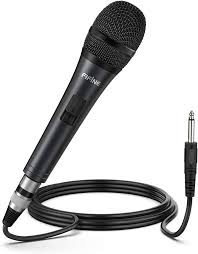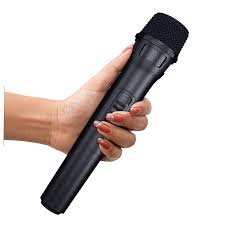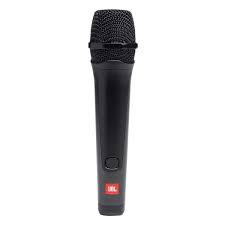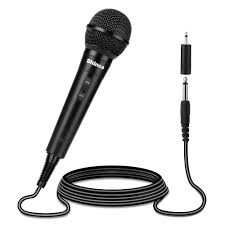
Table of Contents

In the realm of audio equipment, the microphone stands as a crucial tool, bridging voices to ears across varying platforms and settings. Among the myriad choices, the debate between wired and wireless microphones persists, each wielding its unique set of advantages and quandaries. Whether you’re an aspiring musician, a seasoned speaker, or an enthusiastic podcaster, selecting the right microphone can significantly impact your audio experience and performance. At the heart of this choice lies the question: Wired or wireless – which is better for you? Let’s delve into an in-depth exploration, comparing these two contenders on multiple fronts.
Understanding Mic
Before diving into the core comparison, let’s establish a foundational understanding of microphones and their types.
Basics of Mics
Microphones come in various shapes and spectra, from dynamic to condenser types, each serving its purpose in different recording and amplification scenarios. At their essence, microphones convert sound into electrical signals, but the way they do it, along with their connection styles – wired or wireless – adds layers of complexity and suitability to different uses.
Wired Mic
Pros:
- Superior Sound Quality: Wired microphones are lauded for their unmatched sound fidelity, mainly because the direct physical connection eliminates the risk of interference and audio compression.
- Reliability: Lacking the need for batteries or wireless connections ensures that wired mics are less prone to unexpected drop-outs or technical issues.
- Cost-Effective: Generally, wired mics are less expensive than their wireless counterparts, making them accessible to a wider audience.
Cons:
- Mobility Restrictions: The very wire that connects the mic to the sound system can become a tether, limiting the user’s movement.

Wireless Microphones
Pros:
- Freedom of Movement: The absence of physical wires gives performers and speakers the liberty to move freely, enhancing stage presence and engagement with the audience.
- Clean Setup: Wireless systems offer a cleaner, more uncluttered setup, particularly appealing in aesthetically conscious environments or where mobility is pivotal.
Cons:
- Risk of Interference: Wireless mics can be susceptible to interference from other devices, potentially compromising audio quality.
- Battery Dependency: The reliance on batteries can introduce concerns around reliability and additional maintenance.
Comparing Wired and Wireless Mics
Sound Quality

While both can deliver exceptional audio, wired microphones typically have the edge in sound quality, primarily due to the direct, uninterrupted signal path.
Convenience

Wireless mics score high on convenience due to their mobility and ease of setup, especially in dynamic environments or where movement is integral Reliability
Wired mics are deemed more reliable, as they’re less susceptible to interference and don’t rely on batteries. However, advancements in wireless technology continually narrow this gap.
Cost Implications

Considering initial investment and upkeep, wired microphones are generally more cost-effective, though the added value of wireless for specific applications can justify the higher price point.
Use Cases

The choice heavily depends on the use case. Studios and stationary settings may favor wired for their sound quality and reliability, while live performances and events might benefit from the freedom wireless mics provide.

Choosing the Right Microphone for You
Factors to Consider
When choosing between wired and wireless, consider your specific needs, including mobility, sound quality, environment, and budget.
Recommendations by Use Case
For studio recordings or podcasts, a wired microphone may be preferable for its sound fidelity. Conversely, for live performances or public speaking, wireless mics offer significant advantages in flexibility and audience engagement.
Future of Microphones
Technology continues to advance, promising improvements in both wired and wireless microphone technology. While wireless mics become more reliable and less prone to interference, wired mics may see enhancements in sound quality and versatility. The trajectory suggests a convergence where the distinction between wired and wireless becomes less about compromise and more about preference.
Conclusion
The debate between wired and wireless microphones doesn’t champion a definitive winner but highlights a choice informed by personal or professional needs. Both variants have their strengths and weaknesses, making them suitable for different applications. By considering your priorities in sound quality, reliability, mobility, and budget, you can make a choice that resonates with your unique requirements.
FAQs
1. Are wired mics better for studio recording?
Yes, wired microphones often provide superior sound quality due to their direct connection, making them a preferred choice for studio recordings.
2. Can wireless mics be used in large venues?
Absolutely. Wireless microphones are ideal for large venues due to their mobility and the ability to maintain clean setups without cumbersome wires.
3. What are the battery life considerations for wireless mics?
Battery life can vary greatly among wireless mics; always check the specs. It’s also wise to have spare batteries or rechargeable options for longer events.
4. How do I improve the sound quality of a wireless mic?
Ensure your wireless mic is correctly set up to avoid interference, use high-quality batteries, and consider external antennas for improved signal strength.
5. Is it worth investing in an expensive microphone?
The investment depends on your specific needs. More expensive mics can offer better sound quality and features, but evaluate whether these match your requirements.
